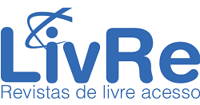(RE)FORMULATING AND RESOLVING PROBLEMS WITH THE USE OF DIGITAL TECHNOLOGIES IN THE INITIAL TRAINING OF MATHEMATICS TEACHERS
DOI:
https://doi.org/10.33871/22385800.2023.12.27.100-119Keywords:
Problem design. , (Re)formulation and problem solving. , Digital Technologies. , Initial teacher training. , Mathematics.Abstract
This article presents the results of a qualitative investigation, whose objective was to investigate what knowledge is produced by future Mathematics teachers, in mathematical, methodological, technological aspects and about the approach to themes of social relevance, through (re) formulation and resolution of open problems. The activities were proposed so that future teachers would acquire the experience of (re)formulating and solving an open-type guiding problem, as well as discuss and reflect on it and on the statement, which is obtained from a Problem Design. The results indicate that a group, formed by three future Mathematics teachers, had the opportunity to work collaboratively, which contributed to (re)build their conceptions about the Design of open problems, the activities of (re)formulation and resolution of problems, with the use of Digital Technologies, and the approach of themes of social relevance, for the discussion, critical reflection and production of knowledge.
Downloads
References
ABRAMOVICH, S. Educating teachers to pose Mathematical problems in the digital age: toward alternative ways of curriculum design. IMVI OMEN, v.5, n.2, pp. 115-136, 2015.
BRAVO, J. A. F.; SÁNCHEZ, J. J. B. Incidencia de la invención y reconstrucción de problemas en la competencia matemática. Revista Iberoamericana de Educación Matemática, n.32, pp.29-43, dic. 2012.
FIGUEIREDO, F. F.; DALLA VECCHIA, R. O design de problemas com as Tecnologias Digitais no ensino da Matemática. In: CONFERENCIA INTERAMERICANA DE EDUCACIÓN MATEMÁTICA, 14., 2015, Tuxtla Gutiérrez. Anais eletrônicos... Tuxtla Gutiérrez: CIAEM-IACME, 2015. Disponível em: http://xiv.ciaem-redumate.org/index.php/xiv_ciaem/xiv_ciaem/paper/viewFile/1298/509. Acesso em: 10 jul. 2015.
FIGUEIREDO, F. F. Design de problemas com a utilização das Tecnologias Digitais na formação inicial de professores de Matemática. 2017. 275f. Tese (Doutorado em Ensino de Ciências e Matemática) – Programa de Pós-graduação em Ensino de Ciências e Matemática, Universidade Luterana do Brasil, Canoas, 2017.
FIGUEIREDO, F. F.; GROENWALD, C. L. O. Problemas abertos com a utilização das Tecnologias Digitais: um processo potencializador na formação do educador matemático. Debates em Educação, v.10, n.20, p.174-198, jan.-abr. 2018.
FILATRO, A. C. Design instrucional na prática. São Paulo: Pearson Education do Brasil, 2008.
GALVÃO, C.; PONTE, J. P. da; JONIS, M. Os Professores e a sua Formação Inicial. In: GALVÃO, C.; PONTE, J. P. da (Org.). Práticas de Formação Inicial de Professores: Participantes e Dinâmicas. 1.ed. Coleção Estudos e Ensaios. Lisboa: Instituto de Educação da Universidade de Lisboa, 2018. p.25- 46
JURADO, U. M. Creación de Problemas: Avances y Desafíos en la Educación Matemática. REMATEC, v.11, n.21, p.79-90, jan./abr. 2016.
JURADO, U. M. La creación de problemas como medio para potenciar la articulación de competencias y conocimientos del profesor de matemáticas. IN: CONGRESO INTERNACIONAL VIRTUAL SOBRE EL ENFOQUE ONTOSEMIÓTICO DEL CONOCIMIENTO Y LA INSTRUCCIÓN MATEMÁTICOS, 2., 2017, Granada. Anais eletrônicos... Granada: CIVEOS, 2017. Disponível em: http://enfoqueontosemiotico.ugr.es/civeos/malaspina.pdf. Acesso em: 13 ago. 2017.
PONTE, J. P. da. Formação do professor de Matemática: Perspectivas atuais. In: ________ (org.). Práticas Profissionais dos Professores de Matemática. 1.ed. Coleção Encontros de Educação. Lisboa: Instituto de Educação da Universidade de Lisboa, 2014. p.343-360
PROBLEMA. Orçamento familiar-mulher. Disponível em: http://www.toondoo.com/ViewBook.toon?bookid=668142. Acesso em: 04 jul. 2018.
RICHIT, A. Interfaces entre as tecnologias digitais e a resolução de problemas na perspectiva da educação matemática. REMATEC, v.11, n.21, p.109-122, jan.-abr. 2016.
CRESPO, S. Learning to pose mathematical problems: Exploring changes in preservice teachers’ practices. Educational studies in Mathematics, v.52, n.3, pp.243-270, 2003.
SCREENCAST-O-MATIC. Site oficial. Seattle: Screencast-O-Matic, 2016. Disponível em: http://www.screencast-o-matic.com/. Acesso em: 04 jun. 2018.
SINGER, F. M.; ELLERTON, N. F.; CAI, J. Problem-posing research in mathematics education: new questions and directions. Educational Studies in Mathematics: An International Journal, Springer Science+Business Media Dordrecht, v.83, n.1, pp.1-7, may 2013.
SKOVSMOSE, O. Cenários para investigação. In:_____. Desafios da reflexão em educação matemática crítica. Campinas, SP: Papirus, 2008.
SOLAZ, A. M.; MOLL, V. F.; MALASPINA, U. Reflexión sobre el significado de qué es un buen problema en la formación inicial de maestros. Perfiles Educativos, México, DF, v.38, n.152, p.14-30, abr.-jun. 2016.
STOYANOVA, E. F.; ELLERTON, N. A framework for research into students’ problem posing in school mathematics. In: CLARKSON, P. C. (Ed.). Technology in mathematics education. Mathematics Education Research Group of Australasia. Melbourne: 1996. pp.518-525
TOONDOO. Site. [Canoas]: JAMBAV, 2014. il. color. Disponível em: http://www.toondoo.com/. Acesso em: 3 jun. 2018.
UNESCO. Projeto de Padrões de Competência em TIC para Professores: marco político. UNESCO-BRASIL: 2009. Disponível em: http://unesdoc.unesco.org/images/0015/001562/156210por.pdf. Acesso em: 15 set. 2017.
YIN, R. K. Pesquisa qualitativa do início ao fim. Porto Alegre: Penso, 2016.
Downloads
Published
How to Cite
Issue
Section
License
Copyright (c) 2023 Revista Paranaense de Educação Matemática

This work is licensed under a Creative Commons Attribution-NonCommercial-NoDerivatives 4.0 International License.










